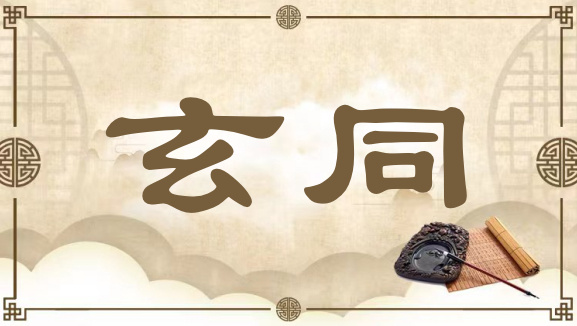Hidden Harmony

隐晦的齐同。“玄同”一说最早见于《老子》。道家认为,统治者应该以无为的方式,顺应并辅助实现百姓自己而然的状态。因此,统治者不应彰显是非善恶的标准,要避免因特定的标准区别对待治下的百姓。同时,统治者始终发挥着辅助百姓的功用而不彰显自己超越于众人之上的权力与地位。在这种无为之治下实现的君主与百姓之间、百姓彼此之间的齐同被称为“玄同”。
The concept of xuantong (玄同) or hidden harmony first appeared in the Daoist classic Laozi. Daoism holds that a ruler should practice non-action, adjusting and assisting to enable the natural ways of the people. A ruler should not dictate the criteria for what is considered right or wrong, nor should the people under his rule be targeted discriminatorily based on such criteria. Likewise, a ruler should be consistent in aiding the people and should not flaunt power or higher status. Under the governing principle of non-action, harmony between the people and between them and the ruler is referred to as "hidden harmony."
引例 Citation:
◎塞其兑,闭其门,挫其锐,解其分,和其光,同其尘,是谓玄同。(《老子·五十六章》)
堵塞欲望的窍穴,关闭欲望的大门,磨掉锋锐,解除纷争,收敛自身的光耀,混同于万物的尘垢,这就是所谓的玄同。
Plug the orifice of cravings, close the door of desires, blunt the sharp edges, resolve disputes, dim one's brilliant rays, blend with the dust on all things, and one will achieve hidden harmony. (Laozi)
推荐:教育部 国家语委
供稿:北京外国语大学 外语教学与研究出版社
责任编辑:钱耐安





